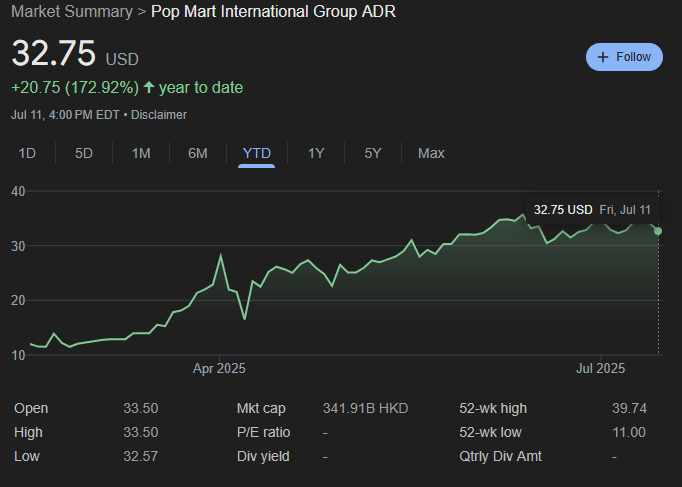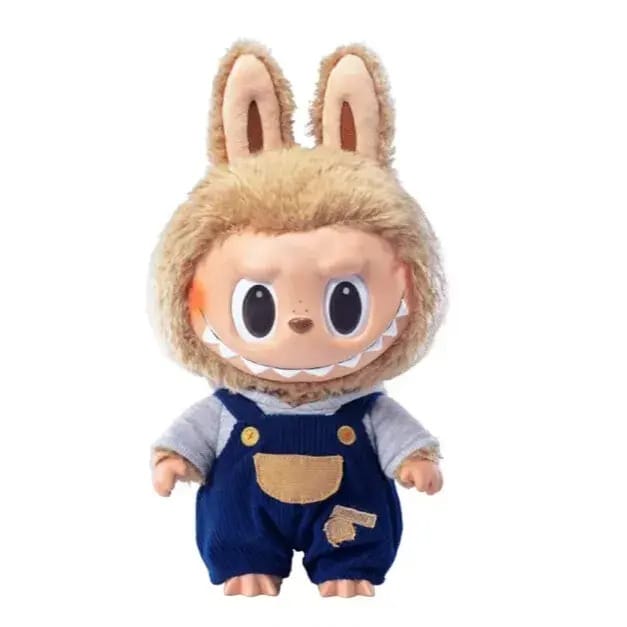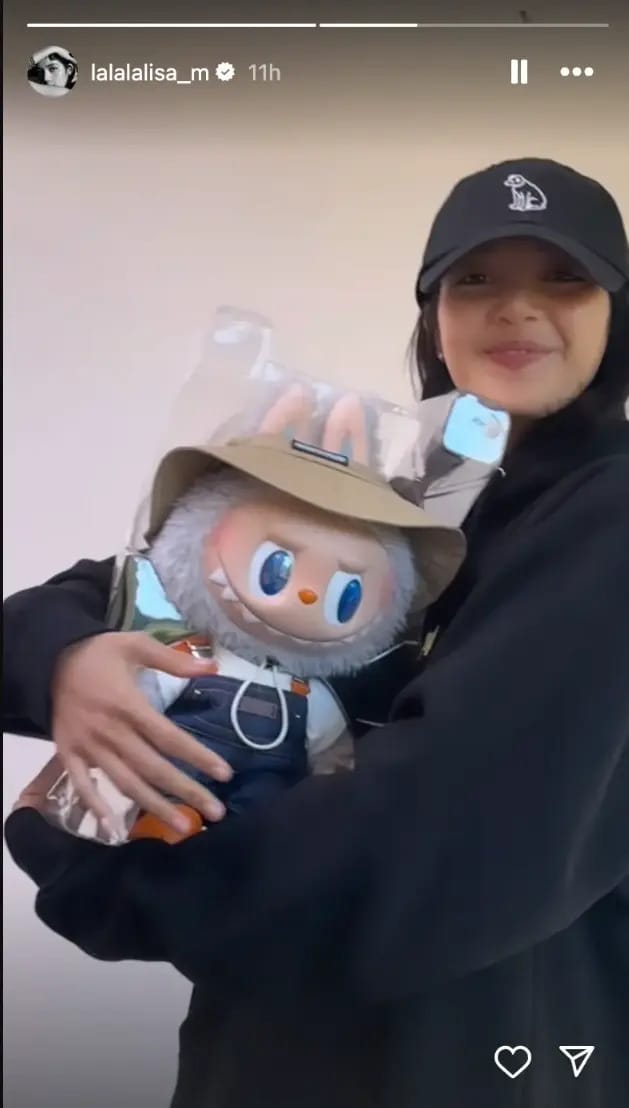- Pivot & Flow
- Posts
- Labubu Phenomenon
Labubu Phenomenon
How a Dutch Artist’s “Ugly Cute” Dolls Built a $44 Billion Empire
Happy Sunday.
So this one's a little different than normal but I do enjoy writing these Sunday articles when they're a little less analytical and a little more ranty. This is about Pop Mart International Group $PMRTY… and why they're up almost 200% in one year selling ugly dolls with teeth. I'm not promoting their stock or being paid by them in any way, I just think this is a wild story and is fun to write about.
Pop Mart went from $7 billion to $42 billion in about a year.
$42 billion.
That's what Elon paid for Twitter. For dolls that look like they need orthodontic work that adults are buying/collecting.

The Most Expensive Ugly Teeth in History
These things are called Labubu dolls. Picture a troll doll that is also kinda squishy cute. They're "ugly cute" which is apparently a $44 billion aesthetic now. A friends kid got some as a gift recently and I thought, "Oh cool, thats a weird doll." Turns out It was one of the most valuable items in the house.
These things sell for thousands of dollars. The rare ones? Six figures. A human-sized Labubu sold for $170,000. For that money, you could might be able to buy an actual human (I’m kidding, FBI).

Labubu Doll
Origin Story
The story of the Labubu dolls is there's a guy who's an artist around 2015. He's in the Netherlands. He gets inspired to create like a toy world. So like a character world based on where he's at in the Netherlands. So he designs these ugly cute doll things in 2015.
Not a lot happens from there. In 2019, four years later, he partners with this company PopMart to sell them. And PopMart was started about a decade ago because this guy Wang Ning had this insight which is he thought of this trend → kids toys for adults is going to be a big thing. He creates this store to really take advantage of this business mechanic called blind boxes where you buy the box but you don't know what's inside. Similar to Pokemon card packs. So this mechanic, which I think they call like the gotcha mechanic, creates a lot more spending. People will keep buying because it's a little bit like a treasure hunt or even gambling.
The Lisa Effect (Or: How One Instagram Post Created $30 Billion in Value)
Pop Mart was already doing okay – they went public in 2020, stock doubled first day, solid $7 billion company selling various collectibles. But then came the hurricane.
First, Rihanna gets spotted in 2023 casually wearing a Labubu clipped to her bag. Organic, unsponsored. Just Rihanna being Rihanna with a weird doll hanging off her purse.
Meanwhile in Thailand, people start thinking these ugly dolls are good luck charms. Kinda like spiritual protectors (Wind Chime type vibe)
Going nuclear: Lisa from Blackpink (if you don't know Blackpink, ask your teenage daughter – they're basically the Beatles for Gen Z). She goes to Thailand, tries to buy some Labubu dolls, they're sold out. The salesperson tells her it's impossible to get them.
Wrong thing to say to a pop star.
Lisa becomes obsessed. Starts collecting them. Then in April 2024, she posts on Instagram hugging a 2-foot tall Labubu.
That photo? Pop Mart stock is up 600% since then. One. Flippin. Photo.
The stock is up 6x since that photo was taken.

The Psychology of Success
The Lollapalooza Effect is happening here: Charlie Munger's coined term for when multiple psychological biases compound. You've got FOMO + collectibility + status signaling + gambling mechanics + celebrity endorsement all hitting at once. It's the perfect storm of consumer manipulation..
Lipstick Effect (economic pressure driving luxury purchases to small luxury items)
Kidult Effect (adults seeking comfort through things that connect with their childhood during economic stress)
Status Symbol Effect (the bag clips making them visible accessories)
Scarcity/FOMO Effect (blind boxes, sold out items)
Inevitable Crash
Pop Mart found the perfect formula: gambling mechanics + artificial scarcity + celebrity endorsement + adult regression + status signaling. They turned a $10 piece of plastic into a $44 billion company.
It's brilliant. It's insane. It's unsustainable.
The pattern is hilariously consistent:
Cabbage Patch Kids: Peak $600M → Crashed to $50M (down 92%)
Beanie Babies: Peak $1.4B → Worthless (down 96%)
Pokemon Cards: Actually came back 20 years later (the exception)
Stanley Cups: Remember when people were fighting over those? Your wife or girlfriend has two different colors in the cabinet right now.
Cabbage Patch Kids, Beanie Babies, Pokemon cards, Stanley cups - they all peaked at around $1.6 to 2 billion in sales.
Labubu only did about $700 million last year. So on that scale, Labubu is actually still small compared to those peaks.
While thats fun to think I’d try to short this sometime early 2027 in theory… I likely would never actually hold a position like that. (I think)
Stay curious 🙂
- John
Today’s Sponsor
Create How-to Videos in Seconds with AI
Stop wasting time on repetitive explanations. Guidde’s AI creates stunning video guides in seconds—11x faster.
Turn boring docs into visual masterpieces
Save hours with AI-powered automation
Share or embed your guide anywhere
How it works: Click capture on the browser extension, and Guidde auto-generates step-by-step video guides with visuals, voiceover, and a call to action.

